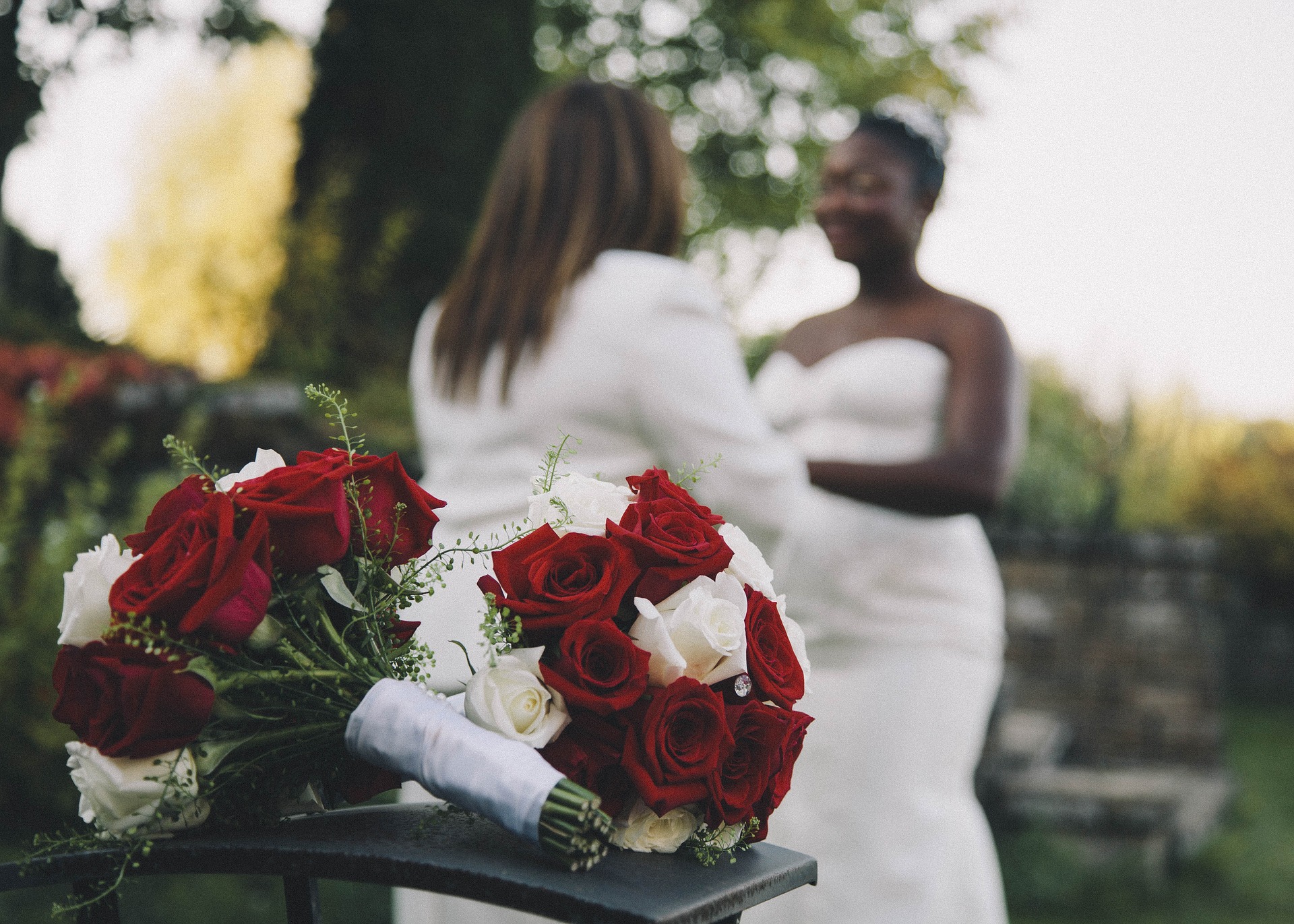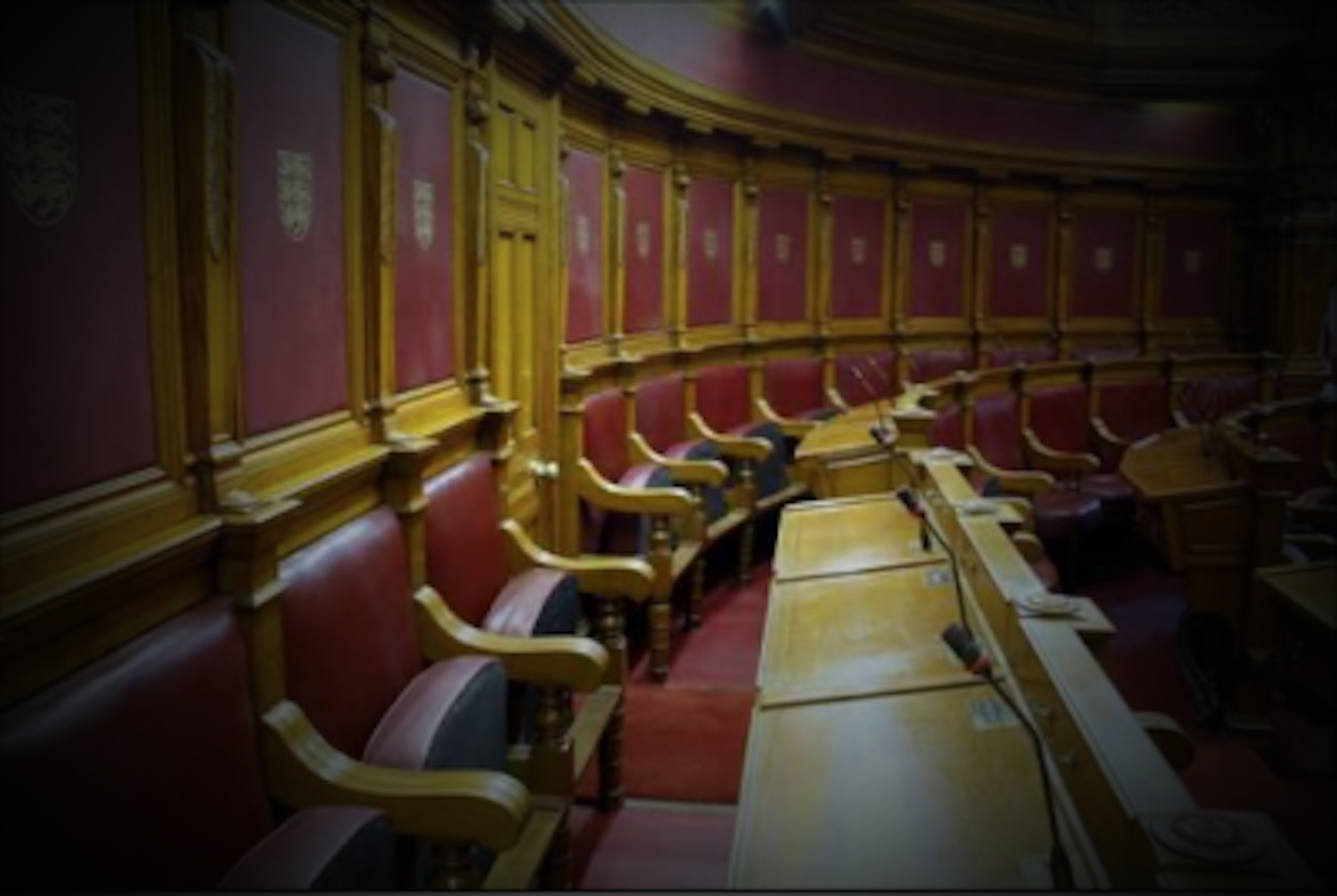

A debate which has split the island's faith community over whether businesses should be allowed to refuse to take part in the wedding of a same-sex or trans couple, is set to begin in the States Assembly today.
And one group, the Freedom Church, has warned that if businesses aren't given an 'opt-out' then it may "impact charitable work undertaken by organisations of religious conviction."
The proposed new Marriage Law, published by the Chief Minister in October, will also allow marriages to take place in the open air, including in public spaces, and for humanist and other non-religious belief celebrants to be authorized to solemnize marriages on the same terms as all other civil celebrants.
It also provides better safeguards against forced and sham marriage, which the report accompanying the draft Law described as "increasingly important."
But it is the issue of gay or trans-marriage, which was agreed by the States Assembly in principle in September 2015, which has been the main focus of comment.
The proposed new law includes a so-called 'quadruple lock:' protections for religious organisations and officials who do not consent to the solemnization of same-sex marriage to make sure they wouldn't be compelled to do so. It also enables them to refuse to consent to a place of public religious worship being used for a same-sex marriage.
But it doesn't include what is variously termed a 'conscience clause' or 'tolerance clause,' to allow businesses or individuals to refuse to take part in a same-sex or trans marriage ceremony, as "matters relating to a conscience clause would be given effect via exemptions in discrimination legislation as opposed to marriage legislation."
The report accompanying the proposals also notes: "Furthermore, there are very significant difficulties associated in creating a position whereby one person’s right to act in such a way as to give expression to their religious beliefs is greater than another person’s right to be treated in a non-discriminatory matter. This being different to a person’s right to have freedom of belief. Attempts to introduce a conscious clause into the Equality Acts in England and Wales and Scotland failed on the grounds that such a clause would be contrary to the principle of equal treatment."

Pictured: Equality and diversity charity Liberate have called the Corporate Services Scrutiny Panel's amendments "discriminatory."
However, the Corporate Services Scrutiny Panel - chaired by Deputy John Le Fondré - decided to take this further and submitted amendments to introduce an opt-out.
The Attorney General, Robert MacRae, reviewed the the Panel’s proposed conscience clause and concluded that when "taken at its broadest", it was compatible with the European Convention on Human Rights.
But the amendment has been slammed as discriminatory by equality and diversity charity Liberate. Vic Tanner Davy, CEO Liberate said it would "fundamentally alter underlying principles of discrimination legislation that are accepted the world over", adding that the outcome of invoking such a clause to justify discrimination would be "unhappy for all concerned."
The charity launched a petition asking States Members to reject the amendment which has since been signed over 3,900 times.
Deputy Montfort Tadier said the 'tolerance' clause was in fact intolerant and so was being disguised behind an "offensive and insidious misnomer."
The given name 'tolerance clause' is itself an offensive & insidious misnomer. It is, in fact, the opposite - an intolerance clause. If it were targeted at the disabled or a racial minority, it would be clear even to these fundamentalists
— Montfort Tadier (@DeputyTadier) January 28, 2018
In a lengthy post on the subject, Senator Philip Ozouf wrote: "Such amendments have no integrity, they are not fair, and show no compassion. To enshrine in law such discrimination would shame Jersey, and is not what I hope the majority of islanders would wish to see us do."
While the debate has split the community, it has also done the same for religious groups. Senior Church leaders from the Anglican and Methodist Churches called for the States to reject any form of 'tolerance' clause. Reverend Graeme Halls, Superintendent of the Jersey Methodist Circuit, said that it was necessary to not only "hear each other", but also "aim for what is right and good."
He wrote: "This is a debate about how we ensure all of our community has equal rights and responsibilities, and that means that one group does not and cannot have the right to discriminate against another, and certainly not for that to be enshrined in law. I hope that the States will not pass the tolerance clause, because it is a fine line between conscience and prejudice, justice and belief, and when the two get muddled we can find ourselves campaigning for matters that can be used by others against ourselves. So we need to be careful what we wish for."
He added it would do the Church no good to appear "intolerant, old fashioned, prejudiced, out of touch and unable to change." "We do not need the protection of the law in order to hold on to our views, and it is not right or good that we seek to impose our views on others, inside or outside the church, in a way that is harmful, unfair or discriminatory."

Pictured: Senior Church Leaders from the Anglican and Methodist Churches called for the States to reject any form of tolerance clause.
Jayne Ozanne, a member of the Church of England’s General Synod - the legislative body of the Church of England, referred to the Occupation to urge the Assembly to reject the tolerance clause. She wrote: "Our islands know more than most the threat to freedom when darker forces invade, and how precious it is to guard these freedoms that we so nearly lost. It is in such times we must find the courage to stand firm for what we believe and recognise what binds us together as a community.
"As such, anything that seeks to divide and separate us, that looks to demonise one group as the “other” can only ever cause pain and suffering, particularly for the most vulnerable in our society."

Pictured: The Freedom Church, along with the Jersey Evangelical Alliance, have called on States Members to support the 'tolerance clause', brought forward by the Corporate Services Panel.
The Freedom Church, along with the Jersey Evangelical Alliance, have voiced their support for the clause, saying it will ensure that people "will not be compelled by the States to act in a way that contravenes their sincerely held religious convictions."
The church's senior leaders, John Andrew-Jones, Tim Bond and Andrew de Gruchy, wrote a letter to States Members, asking them "to seek a compromise that balances the rights of all individuals in our Island." They wrote: "In our pluralistic and tolerant society, I do not believe the States of Jersey should seek to bind the conscience of its citizens and compel Islanders to act in a way that goes against their deeply held religious convictions. I believe a civilized society is marked by tolerance of differing beliefs and I would not want the States of Jersey to ignore the deep and sincere convictions held by so many in relation to this matter."
They added that the 'tolerance clause' was very limited in scope and did not provide "a license to discriminate against people based on their sexual orientation", but that "individuals or organisations cannot be compelled to, participate in, promote, or provide goods and services that would endorse a same-sex marriage or reception, and that religious organisations could not be compelled to hire out their premises."
They concluded that if the Marriage Law is passed without the amendment suggested by the Corporate Services Scrutiny Panel, "people of religious conviction would likely face intolerance and discrimination" if they refuse to hire out premises or provide goods and services that would endorse a same-sex marriage. They warned it would also cause "significant disharmony" and may even "impact charitable work undertaken by organisations of religious conviction."
The debate on the new marriage law and the proposed amendments starts today.
Comments
Comments on this story express the views of the commentator only, not Bailiwick Publishing. We are unable to guarantee the accuracy of any of those comments.